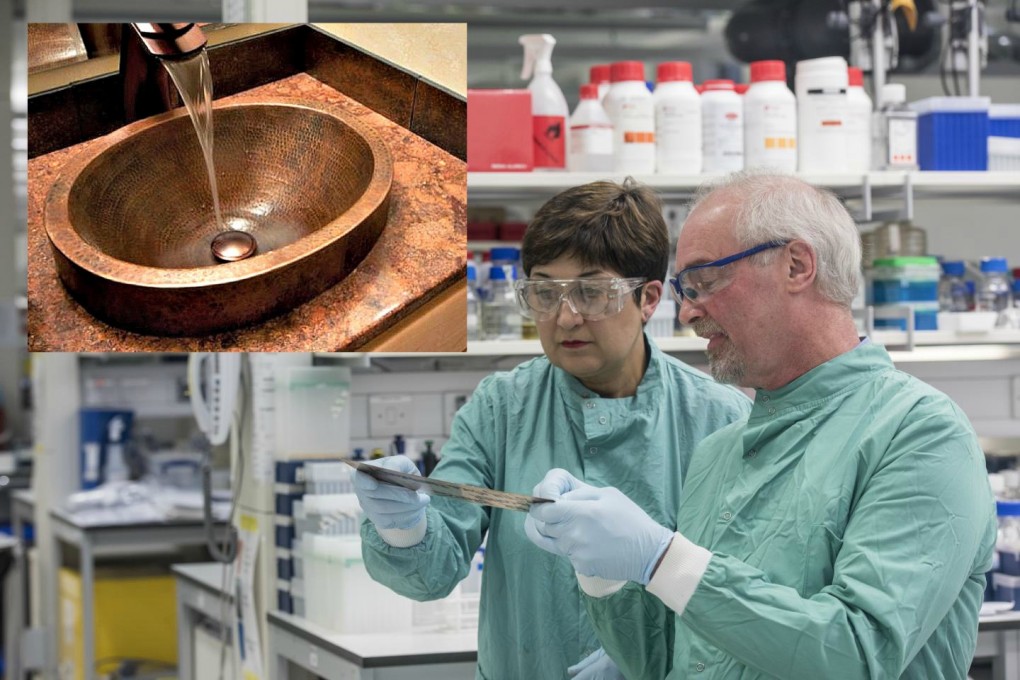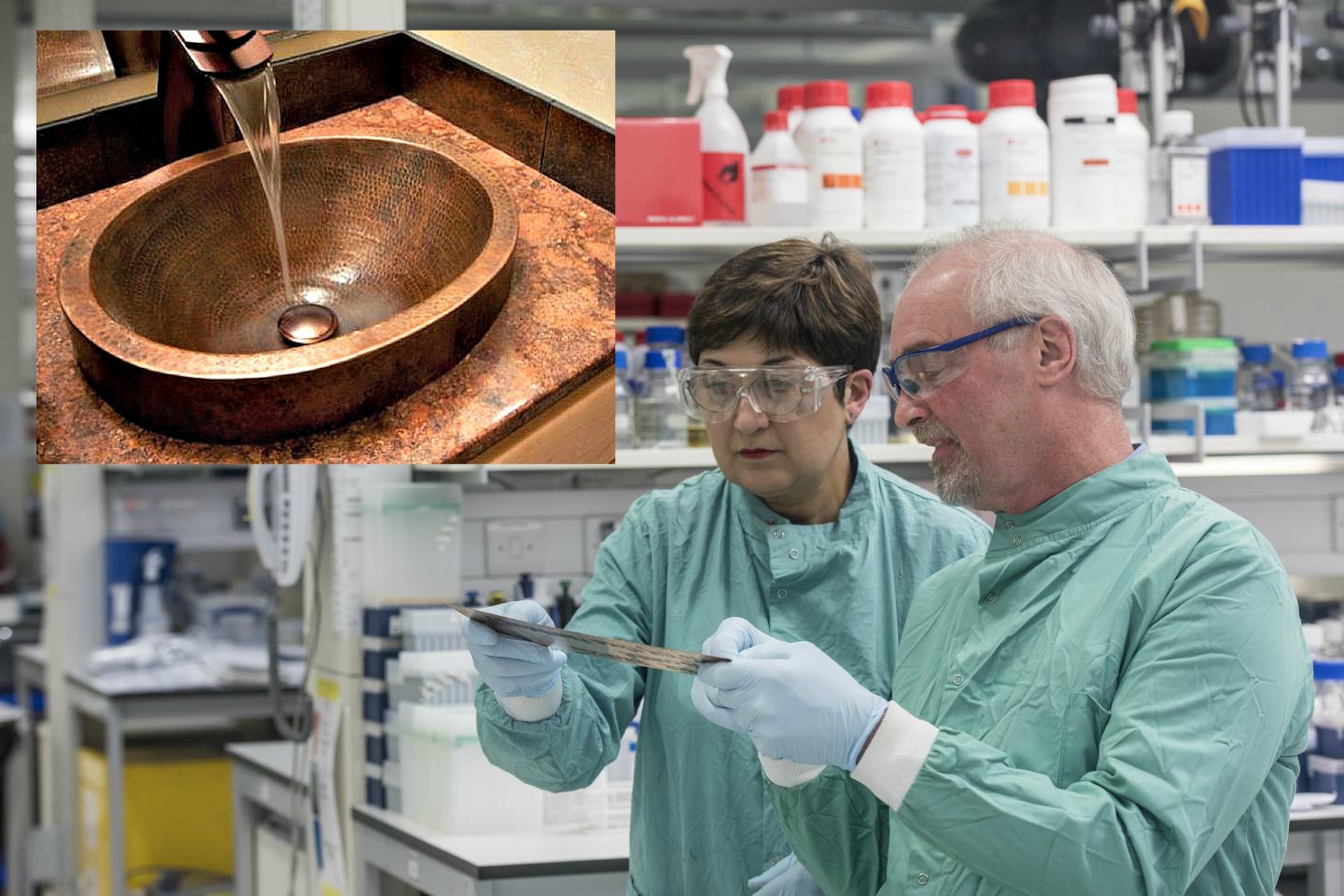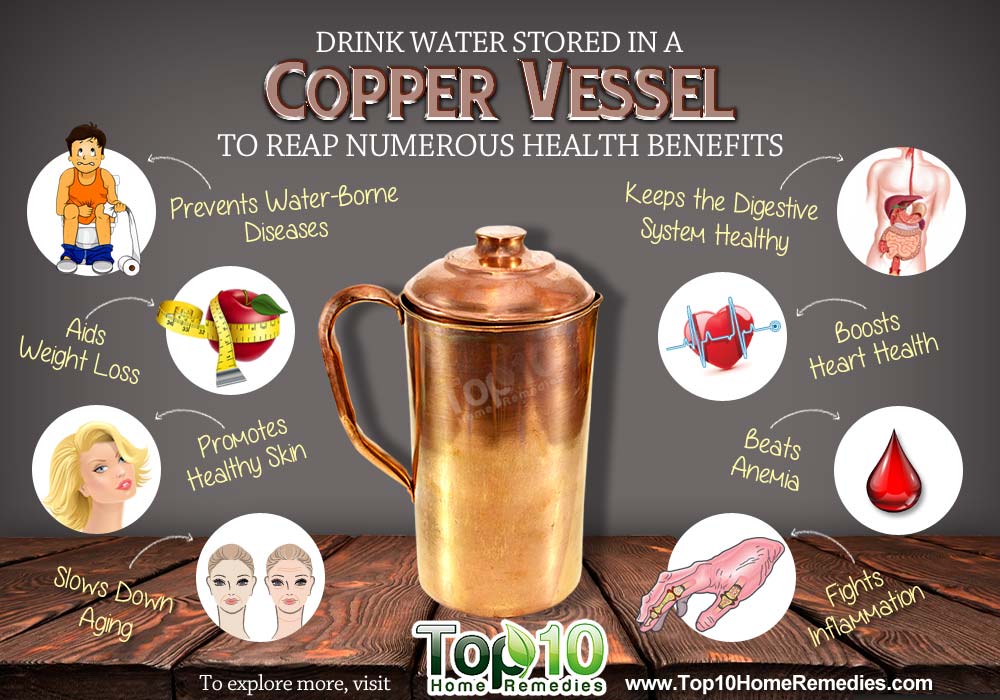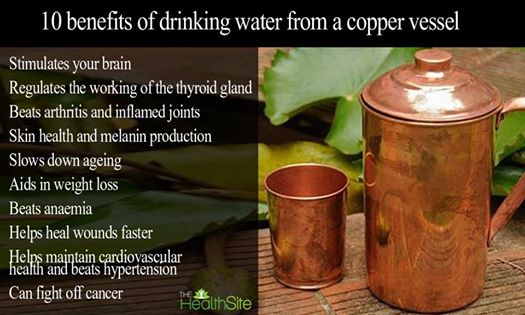Copper Destroys MRSA at a Touch
New research from the University of Southampton shows that copper can destroy MRSA spread by touching and fingertip contamination of surfaces.
Frequently-touched surfaces in busy areas – such as hospitals, transport hubs and public buildings – are at high risk of community-acquired and healthcare-associated infections (HCAIs) caused by methicillin-resistant Staphylococcus aureus (MRSA) and methicillin-sensitiveStaphylococcus aureus (MSSA). Bacteria deposited on a surface by one person touching it, or via contaminated body fluids, can be picked up by subsequent users and spread to other surfaces, potentially causing thousands of infections worldwide. There were over 800 cases of MRSA and almost 10,000 cases of MSSA reported by English NHS acute Trusts between 1 April 2014 and 31 March 20151.
In previous Southampton studies, simulated ‘droplet contamination’ of MRSA – representing a sneeze or a splash – showed it was rapidly killed on copper and copper alloy surfaces. However, contamination of surfaces often occurs via fingertips, drying rapidly and potentially being overlooked by cleaning regimes, unlike visible droplets.
Widget not in any sidebars
Dr Sarah Warnes, lead author of the new research, explains:
Our latest research shows that in simulated fingertip contamination of surfaces with millions of MRSA or MSSA, the cells can remain alive for long periods on non-antimicrobial surfaces – such as stainless steel – but are killed even more rapidly than droplet contamination on copper and copper alloys. Exposure to copper damages the bacterial respiration and DNA, resulting in irreversible cell breakdown and death.
This new paper, published in the journal Applied and Environmental Microbiology, demonstrates that MRSA die on copper surfaces by a multifaceted attack from copper ions and reactive oxygen species (ROS).
Professor Bill Keevil, Chair in Environmental Healthcare at the University of Southampton and the paper’s co-author, explains the significance of these findings:
It’s important to understand the mechanism of copper’s antimicrobial efficacy because microorganisms have evolved various mechanisms to convey resistance to disinfectants and antibiotics. Our work shows that copper targets various cellular sites, not only killing bacterial and viral pathogens, but also rapidly destroying their nucleic acid genetic material so there is no chance of mutation occurring and nothing to pass on to other microbes, a process called horizontal gene transfer. Consequently, this helps prevent breeding the next generation of superbug.
Touch surfaces made from solid antimicrobial copper are already used by hospitals, schools, mass transit hubs, sports facilities and offices around the world to reduce the spread of infections, supporting key infection control measures such as good hand hygiene and regular surface cleaning and disinfection.
For more information on antimicrobial copper, visit http://www.
Image: University of Southamptom, with a copper sink superimposed
Dr. Sarah Warnes (left) and Professor Bill Keevil.
Hey Natural Blazers! Here’s the copper mug I use daily – I like to let the water set for hours for more of the benefits of copper. It’s not for everyone, but it’s nice on a hot day and it gives me more peace of mind when there is flooding and water scares.
Sign-up for our newsletter for a free eBook on the 40 uses of Apple Cider Vinegar!






